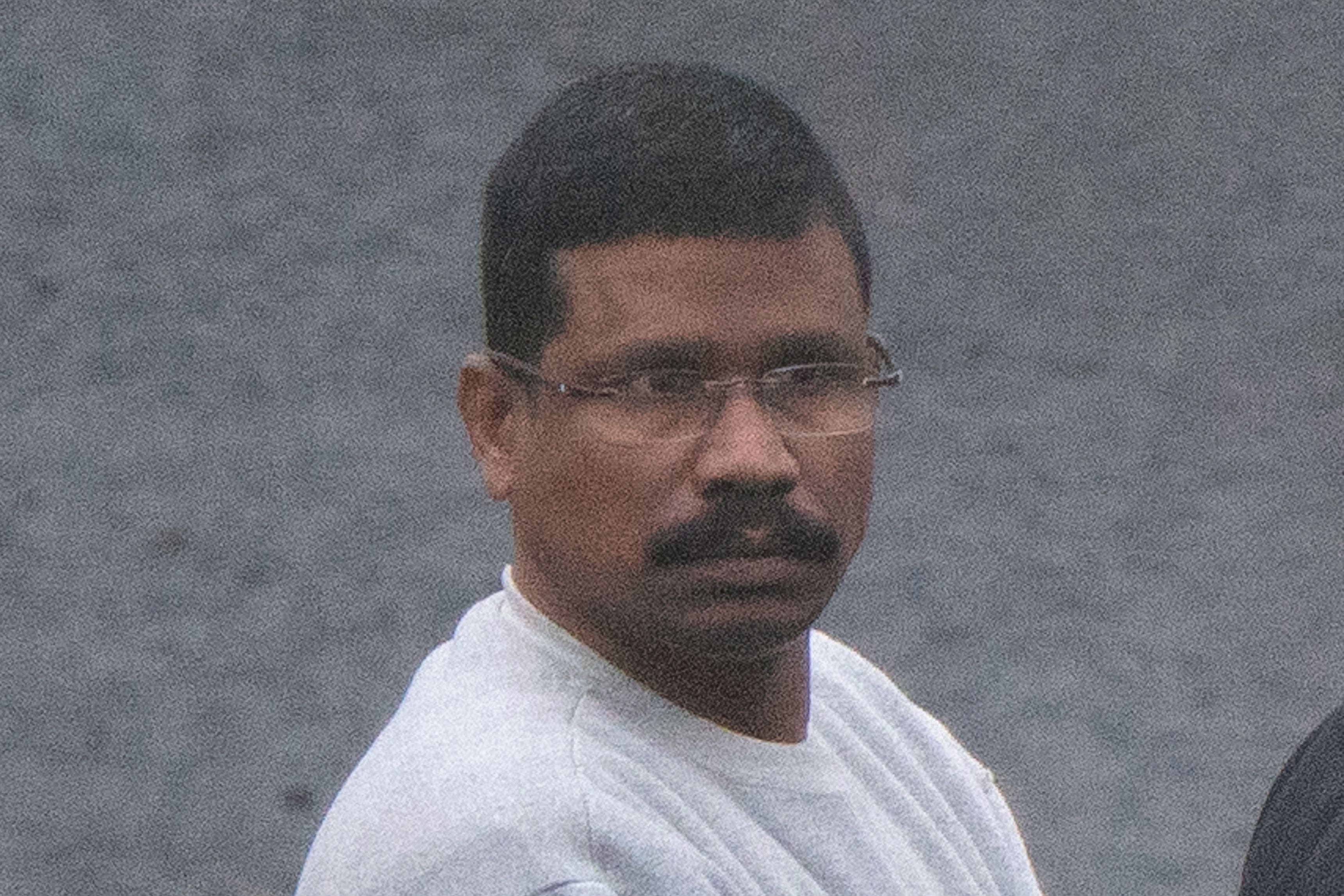Triple-killer father made audio recording as he strangled his wife, court told
Saju Chelavalel killed Anju Asok in the mistaken belief she was having an affair and then asphyxiated Jeeva and Janvi Saju at least four hours later.

A father strangled his wife and their two young children while drunk and was then Tasered by police after holding a knife to his own throat, a court has heard.
Saju Chelavalel sobbed in the dock and bowed his head as a court was told he made an audio recording which prosecutors allege captured the sounds of coughing and retching as he strangled NHS nurse Anju Asok.
The 52-year-old pleaded guilty at a previous hearing to Ms Asok’s murder and that of their six-year-old son Jeeva Saju and daughter Janvi Saju, aged four.
A sentencing hearing at Northampton Crown Court was told on Monday how Chelavalel had more than four hours “to reflect on whether to kill his children” before using a dressing gown cord to strangle them in the early hours of December 15 last year.
Chelavalel, originally from Kerala in India, claims he lost control while drunk in the mistaken belief that his wife was having an affair, killing her at around 10pm on December 14 at their ground-floor flat in Petherton Court, Kettering.
Opening the facts of the case, prosecutor James Newton-Price KC said the audio recording also captured the sound of a blender being used to make a “toxic” mixture of chocolate and pills intended to send the children to sleep.
Mr Newton-Price said Chelavalel urged police to shoot him at his home, where he also left instructions for his own and his family’s bodies to be cremated in India.
The prosecutor told the court that the killer was arrested after a 999 call at 11.12am on December 15, after a neighbour saw him apparently unable to speak.
After officers smashed a window to gain access to the property, Mr Newton-Price said, Chelavalel was seen to be holding a knife to his own throat.
The barrister told the court: “He responded (to the officers) with words to the effect of: ‘I am going to kill myself’. He said: ‘You shoot me, you shoot me’.”
Chelavalel was tasered and handcuffed and police went into a bedroom, where they found the body of 35-year-old Ms Asok, who worked as a nurse at Kettering General Hospital.
The children’s bodies were then found next to each other on a double bed in a different room.
A letter written by Chelavalel in English was found at the scene, in which he made unsupported accusations about his wife being unfaithful and claimed to have cryptocurrency investments and £5,000 in other funds.
The letter stated: “Please use this amount to transfer our corpses to India.”
The court heard that no evidence whatsoever of any affair was found on Ms Asok’s phone, but that searches for women on dating sites were made by Chelavalel on December 3 and 12.
Part of the audio recording made by Chelavalel was played to the court, with Mr Newton-Price telling Mr Justice Pepperall: “The word ‘mummy’ can be heard and the defendant whispering.”
He said of coughing sounds heard on the recording: “We suspect that that may be the moment of strangulation (of Ms Asok) but we can’t say that with absolute certainty.”
During police interviews, Chelavalel claimed he could not remember killing his children, but said he had lost control of himself when his wife made an offensive comment about his mother.
Offering mitigation, defence KC George Carter-Stephenson said the circumstances of the case were tragic in the extreme for relatives of the victims.
He said of Chelavalel: “They are also tragic for this particular defendant. Whatever sentence the court imposes on him today he has to live with the knowledge of what he did on that particular night.”
Addressing Chelavalel’s claims that his wife was unfaithful to him, Mr Carter-Stephenson said: “Although there is no evidence of it, it is something that he had believed.
“That belief was obviously wrong. But he continues to hold that view.”
Chelavalel’s possession of a knife during his arrest was part of his intent to end his own life, the defence KC argued.
The audio recording was made because it “was simply left on” from a period when the children were heard singing, Mr Carter-Stephenson added.
